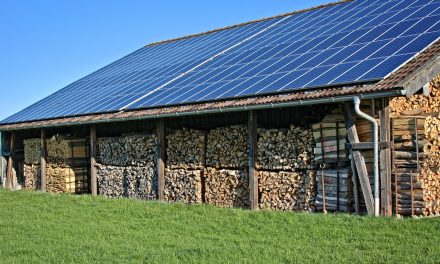Across the UK, businesses are reimagining the way they use outdoor space. From boutique hotels and rooftop bars to cafés, restaurants, and office terraces, the demand for functional yet stylish outdoor structures has grown significantly in recent years. At the forefront of this trend are commercial pergolas — architectural features that blend design, comfort, and practicality to create spaces that can be enjoyed year-round.
More than simple shade solutions, today’s pergolas are sophisticated extensions of a brand’s identity. They offer shelter, ambience, and versatility — transforming terraces, courtyards, and gardens into welcoming environments that attract and retain customers.
A Blend of Function and Form
A well-designed pergola does more than provide protection from the elements; it enhances a property’s aesthetic appeal and functionality. In commercial settings, pergolas serve multiple purposes: outdoor dining areas, event spaces, lounge zones, or breakout areas for staff.
Modern commercial pergolas come in an array of styles and configurations. Aluminium and steel models offer clean, contemporary lines and impressive durability, while timber-framed options bring a warm, natural character suited to rustic or traditional settings.
Technological innovation has also elevated the concept. Many pergolas now feature retractable roofs, motorised louvres, integrated LED lighting, and even heating systems — ensuring that guests remain comfortable no matter the weather. Some designs include built-in drainage and sound systems, making them ideal for hospitality venues seeking to create immersive outdoor experiences.
For hotels and restaurants, a pergola can extend usable seating space and increase revenue potential. For offices and co-working spaces, it provides a unique environment for meetings, relaxation, or informal gatherings. The result is not just a structural addition, but a meaningful enhancement to how people interact with the space.
Hospitality’s Outdoor Revolution
The hospitality industry has been one of the biggest adopters of pergola design in the UK. Following the rise in demand for al fresco dining and outdoor social spaces, restaurants and bars have realised that well-planned outdoor areas are more than just seasonal features — they’re business assets.
Pergolas create inviting environments that are comfortable, sheltered, and visually appealing. Whether it’s a city rooftop terrace or a countryside hotel garden, these structures allow venues to serve customers year-round while maintaining an elegant aesthetic.
In busy urban areas, such as London or Manchester, pergolas help define a sense of space and privacy. A rooftop bar fitted with a sleek aluminium pergola, for example, can offer a luxurious retreat from the city below. Meanwhile, coastal hotels and countryside wedding venues use timber or hybrid pergolas to blend naturally with their landscapes.
Beyond visual appeal, pergolas contribute to operational efficiency. Weather protection ensures that outdoor seating remains profitable even during unpredictable British seasons, while retractable roof systems give flexibility — open for sun in summer, closed for warmth and shelter in winter.
Branding Through Design
For commercial businesses, especially in the hospitality and leisure sectors, design plays a key role in brand identity. A thoughtfully designed pergola is more than a piece of architecture — it’s a statement.
Lighting, materials, and layout can all be customised to reflect a company’s aesthetic and values. Restaurants often use warm lighting and wood finishes to create a cosy, inviting feel, while luxury hotels might opt for minimalist metal frames and integrated lighting for a sleek, modern look.
Some businesses even use pergolas as focal points for events or promotional photography, positioning them as central features of their venue. A well-designed structure can instantly enhance a customer’s perception of quality, helping to distinguish a business from its competitors.
Pergolas in the Workplace
Outside of hospitality, pergolas are also finding their place in commercial offices and co-working environments. With flexible working models on the rise, many companies are investing in outdoor spaces that support creativity and wellbeing.
Pergolas offer shade and structure for open-air meetings, casual catch-ups, or simply a break from the traditional office interior. When paired with comfortable seating and greenery, they promote relaxation and collaboration — two vital ingredients in modern workplace design.
Furthermore, by incorporating sustainable materials and energy-efficient lighting, pergolas can align with a company’s environmental values, making them a smart choice for businesses seeking to improve their green credentials.
Designing for the Future
As the UK continues to embrace outdoor living — both privately and commercially — the popularity of pergolas shows no signs of slowing down. Manufacturers and designers are continually innovating, creating systems that combine durability, flexibility, and aesthetic excellence.
Whether crafted for a luxury hotel terrace, a café courtyard, or a corporate rooftop, commercial pergolas represent a powerful blend of beauty and utility. They redefine how people experience space, turning open-air areas into welcoming, multifunctional environments that invite connection and comfort.
In a time when experience matters as much as service, investing in a high-quality pergola isn’t just about architecture — it’s about creating moments. For businesses that want to stand out, inspire loyalty, and make every corner of their property work harder, a pergola isn’t an accessory; it’s an opportunity.

























